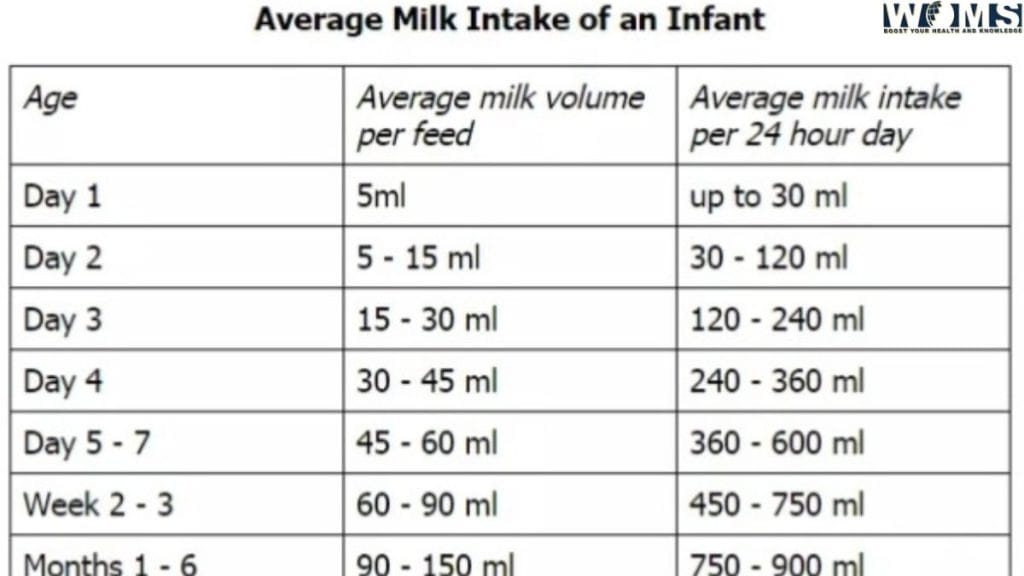Breastfeeding Calorie Calculator

The breastfeeding calorie calculator estimates the number of calories you should consume daily to maintain your health while lactating.
It can assist breastfeeding mothers who want to determine how many calories to ingest in order to lose weight safely. You must take into account your body type, age, and the fact that nursing burns calories (about 670 each day).
What’s a breastfeeding calorie calculator?
When using a breastfeeding calorie calculator while nursing, it is essential you use it correctly so as not to endanger your health. Also, before going on any dieting programs, you must talk to your doctor.
While breastfeeding or pregnant, this calorie calculator will estimate your personal caloric needs—the Mifflin-St. Jeor Equation, which is used by the majority of healthcare experts, is used to determine caloric demands. Additionally, it calculates the number of calories you’ll require as a result of breastfeeding, pregnancy, or physical exercise.
What is the calorie count of breast milk?
100 grams of human breast milk have 70 kcal in them. A healthy woman can produce up to 2,000 to 3,000 grams of milk daily if feeding twins or more. A healthy 6-month-old infant requires approximately 90 kcal/kg and takes 769 grams of milk daily.
When breastfeeding, do you need to eat more calories?
There is a 325–500 calorie depletion due to the average lactating woman producing 25–32 ounces of milk every 24 hours.
If you want to reduce your weight and maintain a healthy weight, it’s crucial to remember that the extra calories you need should come from foods high in nutrients, such as veggies, protein, and healthy fats.
You should use an app to calculate your daily caloric allowance after figuring out how many extra calories you need.
How does the breastfeeding calorie calculator work?
The typical pregnancy weight gain is 26 pounds throughout the first nine months (12 kilograms). This is needed in part for the baby’s growth and in part to replenish the mother’s energy reserves for the duration of nursing.
The fat reserves built up during pregnancy may be used to partially offset the energy cost of breastfeeding if a well-nourished woman has gained this much weight. Diet will supply the remaining energy.
The calculator calculates the daily caloric requirements for maintenance, multiplies them by the breastfeeding energy expenditure, and then deducts a 15% component. So, weight loss ought to be progressive.
Breastfeeding Burns How Many Calories?
There are numerous advantages to breastfeeding for both you and your child. One of the most frequently mentioned advantages is that it can help you lose the weight you amassed during pregnancy. Although nursing doesn’t always result in weight loss, there’s no doubt that the energy required to produce breast milk eats up a lot of calories.

The number of calories you require while nursing depends on a number of factors, including:
- Your Physical activity level (PAL): This refers to your daily movement and is not just restricted to exercise. It also relates to how much physical activity you engage in, such as walking or doing the dishes.
- Your Basal Metabolic Rate (BMR): The number of calories you burn while at rest. Your body weight, height, age, and gender are the main determining factors.
- Your milk production rate: Mothers who are exclusively breastfeeding typically produce 725 ml (24 to 25 oz) of breast milk each day, whereas mothers who are just partially breastfeeding produce less.
- Your milk’s calorie content: Breast milk has about 65 calories per 100 ml or 19 to 20 calories per ounce.
- The energy required by your body to create milk. These are the metabolic activities necessary for producing milk.
A breastfeeding calorie calculator can help you estimate the calculation.
It’s important to remember that calorie counters are only ever estimating. Our individual energy expenditure varies greatly. Some of us ‘burn’ more calories than others because we have larger muscle mass or faster metabolism.
The caloric content of your breast milk varies. Your milk’s fat content, which is highly changeable, plays a significant role in this. It differs from mother to mother and changes throughout the course of a feed. Nevertheless, several studies have calculated that breast milk typically contains about 65 calories per 100 ml or 19 to 20 calories per ounce.
Considering all these details and factors, exclusive breastfeeding results in an additional 500–650 calories burned daily.
How to safely lose weight while breastfeeding?
How many calories you burn compared to how much you consume influences greatly whether or not you will lose weight. Cutting calories won’t always help you lose weight.If we restrict our calorie intake too much or for too long, our bodies have built-in safeguards that prevent us from losing weight.
This is particularly true during the nursing stage when hormonal shifts prevent us from losing excessive weight. If we severely restrict our calorie intake, we risk experiencing a slowed metabolism, a drop in body temperature, and a reduction in the amount of breast milk we produce. These are all methods through which our bodies can make up for the sacrificed calorie shortage.
FAQs
How do you determine calories while nursing?
A healthy lactating woman requires an additional 330 kcal per day during the first 6 months of lactation and 400 kcal per day following the sixth month of breastfeeding. The number of calories burned while breastfeeding depends on the length of lactation.
What happens if a breastfeeding mother doesn’t consume enough calories?
Overly strict calorie restrictions might affect your energy levels and milk supply, especially in the early months of breastfeeding. Fortunately, nursing has been demonstrated to help people lose weight, especially when done for six months or more.
Does breastfeeding burn more calories than pumping?
Your body reacts similarly when using a breast pump because it simulates a baby sucking on the breast. However, nursing is typically more effective than pumping; therefore, mothers who breastfeed do so more frequently, which results in a longer-term increase in calorie burn.
Conclusion
Using the breastfeeding calorie calculator is an excellent approach to ensure you get enough calories for your health and produce enough milk for your child when breastfeeding. Although the calorie calculator for nursing is handy, it is merely an estimate. The best course of action for you would be to consult your doctor.